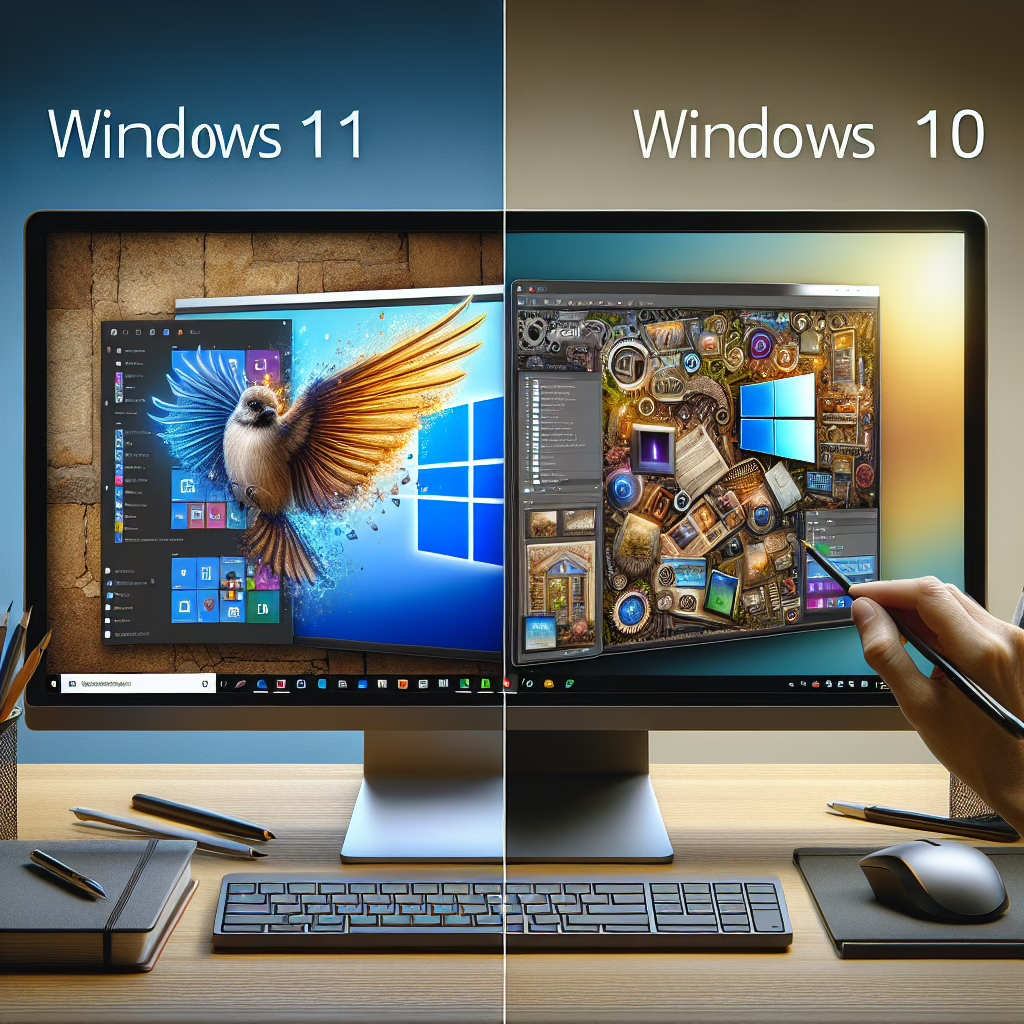Ah, Windows 11! The shiny new kid on the block that everyone seems to be talking about while Windows 10 sits in the corner, sipping its coffee and reminiscing about the good old days. According to the latest buzz, Microsoft has hit a significant milestone with Windows 11, and it’s time to dive into this digital drama where old meets new. Both Windows 11 and Windows 10 have their pros and cons, making this a relevant discussion for users currently contemplating their operating system options.
Windows 11’s Rapid Ascent
Just a few short years since its launch in October 2021, Windows 11 has managed to capture the hearts (and computers) of millions. Recent reports reveal that Windows 11 has surpassed a staggering 200 million active devices. That’s right—two hundred million! It’s like a blockbuster movie that everyone just had to see. Remember when we all thought it was just a fad? Well, turns out, it’s more than just a pretty interface with fancy widgets.
What’s driving this adoption? A mix of curiosity, flashy features, and the inevitable push from Microsoft itself. With the company encouraging users to upgrade from Windows 10—like that friend who won’t stop nagging you to join their workout class—many have taken the plunge into this fresh operating system. The ability to run Android apps natively is one of those shiny new features that have undoubtedly caught the eye of many users.
The Legacy of Windows 10
While Windows 11 struts around flaunting its new features, let’s not forget about its predecessor. Windows 10 is still alive and kicking on over 1.4 billion active devices. Yes, you heard that right! It appears that many users are still quite content with their trusty old OS, much like how some people refuse to part with their flip phones. For more information about Windows 10’s ongoing updates, check out our discussion on Windows 10.
Windows 10 has been an absolute trooper since its launch back in July 2015. Its user-friendly interface and stability have created a loyal fanbase. You know those folks who still swear by their favorite pair of jeans from high school? That’s essentially Windows 10 for many tech-savvy individuals. Its ability to adapt over the years has only added to its legacy.
A Tale of Two Operating Systems
So, what does this mean for us mere mortals navigating between these two operating systems? Well, it seems there’s a bit of tension brewing—a digital sibling rivalry if you will. On one hand, we have Windows 11 with its sleek design and improved performance; on the other hand, we have Windows 10, the dependable classic that refuses to go quietly into the night. Whether it’s enhanced gaming features or better multitasking capabilities, each OS has something to offer its users.
The reality is that both operating systems offer something unique. Windows 11 brings enhanced gaming features—because who doesn’t want to game in style? Meanwhile, Windows 10 provides familiarity and stability, making it a safe haven for users who dread change as much as they dread Mondays. Users can also benefit from Windows 10’s extensive software compatibility, ensuring that their favorite applications run smoothly.
What Lies Ahead for Microsoft?
As we zoom into the future of computing in 2025, Microsoft’s strategy seems clear: they want everyone on board the Windows 11 train. They’re rolling out updates faster than you can say ‘blue screen of death,’ aiming to keep users engaged and entertained. With promises of new features regularly being introduced, it’s crucial for users to stay informed.
For those still clinging to their Windows 10 installations like a security blanket, fear not! Microsoft has promised support until at least 2025. So if you’re not ready to upgrade just yet, you can rest easy knowing your beloved OS isn’t going anywhere for a while. But it would be wise to consider potential updates or solutions that may come with Windows 11.
Final Thoughts: The Great Migration
The question remains: will you stay loyal to your trusty Windows 10 or take the leap into the enticing world of Windows 11? It’s like choosing between a comfortable couch or a stylish new chair—you’ll have to weigh your priorities carefully! Each upgrade comes with its mix of excitement and uncertainty, and this moment is no different.
In conclusion, whether you’re team Windows 10 or team Windows 11, there’s no denying that both operating systems have carved out their place in our digital lives. The choice is yours, but remember: every upgrade comes with its own set of challenges and rewards. Consider what features matter to you the most and how they align with your daily usage.
We’d love to hear your thoughts! Are you leaning towards upgrading or sticking with what you know? Share your experiences in the comments below!
Special thanks to The Verge for providing insights that sparked this article!

